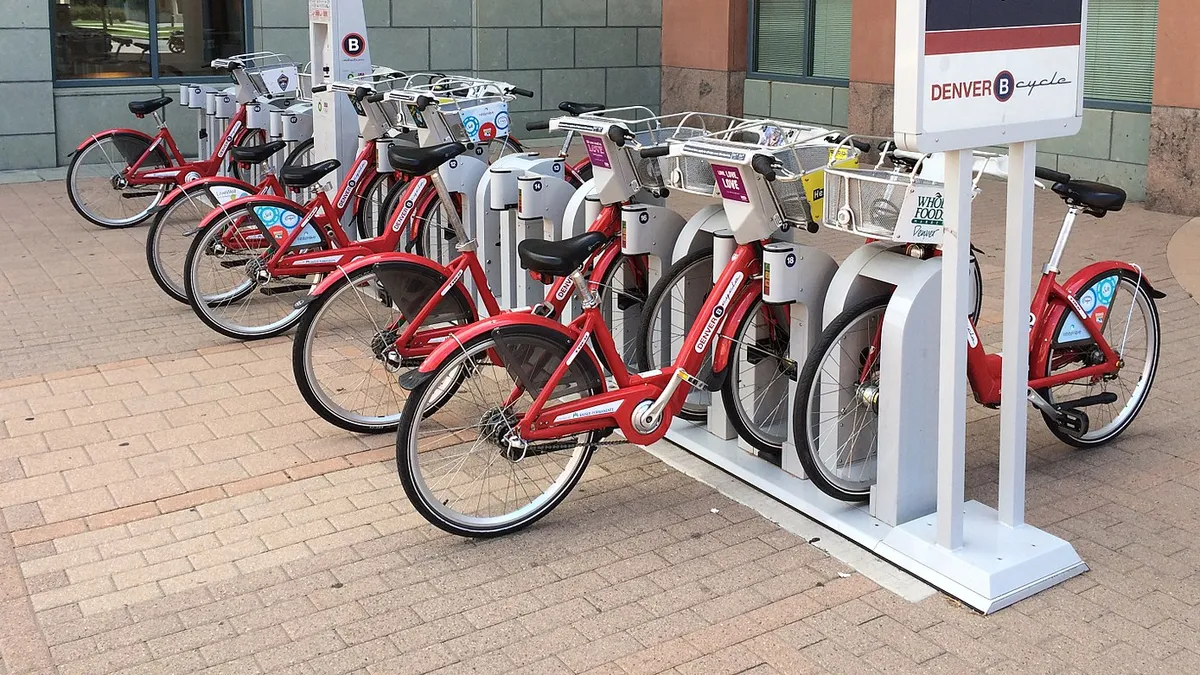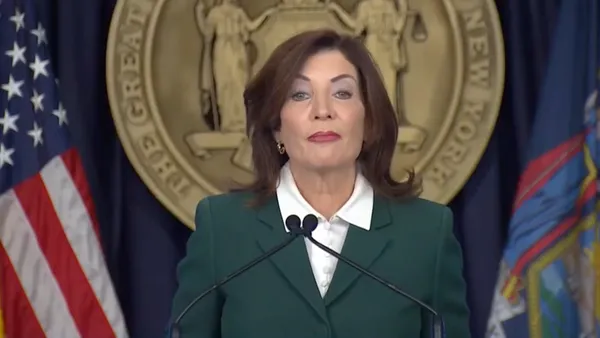Dive Brief:
- Denver's bike-share program, Denver B-cycle, will end a nearly 10-year run when it ceases operations on Jan. 30. B-cycle is Denver's first bike-share program and is owned and operated by nonprofit Denver Bike Sharing.
- Meanwhile, Denver's Department of Public Works will go out to bid for one or more companies to operate shared bike and scooter programs, in a transition from its current permit system to a contract system. It expects to release a request for proposals at the end of January for contracts that are to begin in summer 2020.
- Scooter and e-bike companies currently permitted through the Dockless Mobility Vehicle Pilot Permit Program can continue to operate in Denver until the contracted vendors begin operating next summer.
Dive Insight:
Denver Bike Sharing's board of directors ultimately made the decision not to renew its contract with B-cycle LLC due to dramatic changes in the shared economy since the program's inception.
"We are faced with an aging system that needs to be replaced. And upgrading our current product is not financially viable," Denver Bike Sharing Executive Director Mike Pletsch said in a statement. When the program launched in 2010, it did so with the latest technology and equipment available to ensure success, and "it's time to look again for the latest in bikeshare innovation," he said.
Indeed, shared e-scooters did not exist in the United States 10 years ago, nor did dockless bikes or electric pedal-assist bikes. Just within the past year, mobility companies have pulled their dockless bikes from nearly all U.S. markets and quietly shifted their focus to e-scooters.
Cities that have traditional bike-share programs — including Chicago and New York — are investing more heavily in e-bikes instead of traditional pedal bikes. Denver Bike Sharing itself announced an e-bike pilot this year. And in Denver, the bike-share program relied on tourists and walk-up customers to subsidize residents' ridership, but that business has declined due to increased competition. All of the market changes have created an environment in which it is difficult to remain sustainable, Denver Bike Sharing's statement says.
Denver Public Works decided to switch from a permit system to a contract system based on data gathered during its mobility pilot, a department spokesperson told Smart Cities Dive. A contract will better help the agency lay out the type of operation it wants for shared bikes and scooters. It will help to ensure the city partners with the most qualified operators to further the goals in Denver's Mobility Action Plan. The four key goals in that plan include climate and health, choice, safety and accessibility.
A spokesperson said consumers shouldn't notice too much of a difference when a new program is put in place next summer. Although there will be fewer scooter companies, Public Works doesn't anticipate a significant difference in the number of scooters available.
Denver Bike Sharing didn't say if it will attempt a new bike-sharing or other mobility program when its B-cycle run ends in January. However, the organization hinted in its press release that it might not be entirely finished in the mobility space. Ending Denver B-cycle is "part of a potential transition that will result in a new product in collaboration with a new vendor partner," it said.











